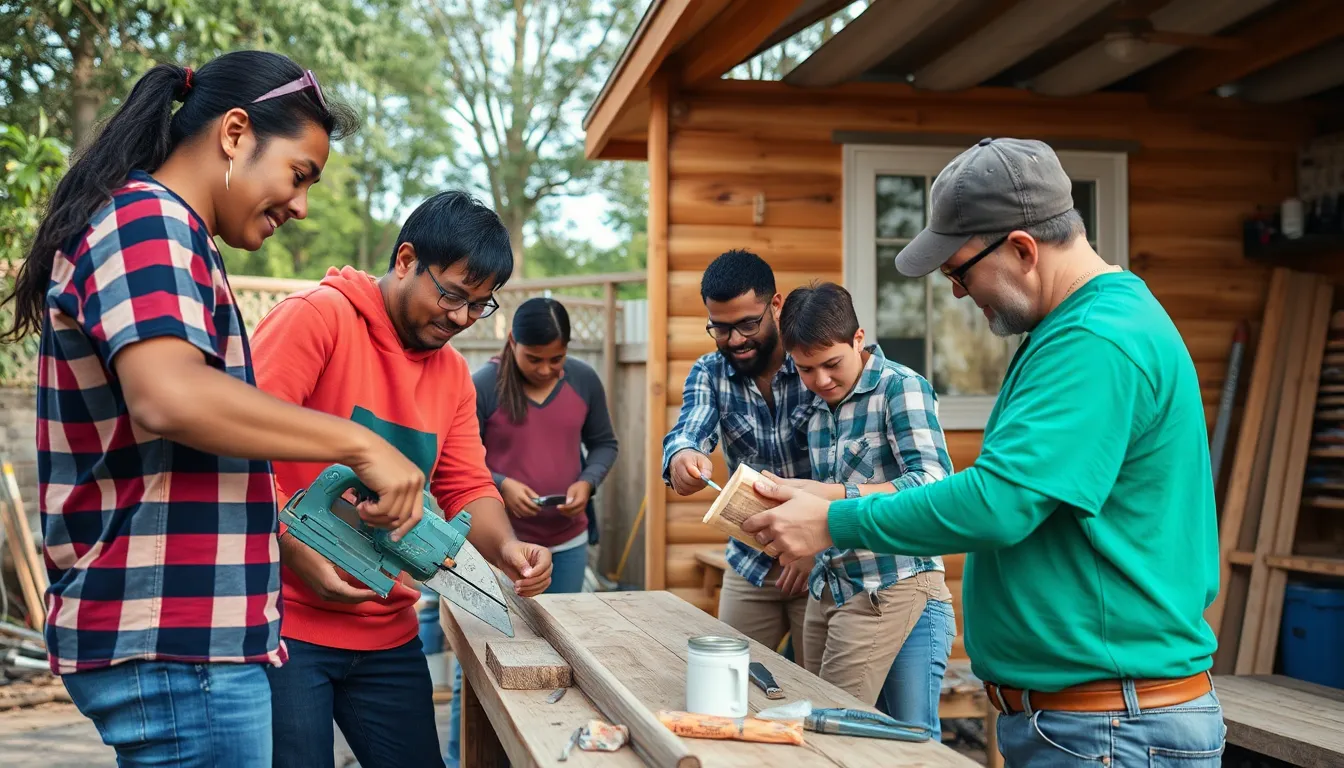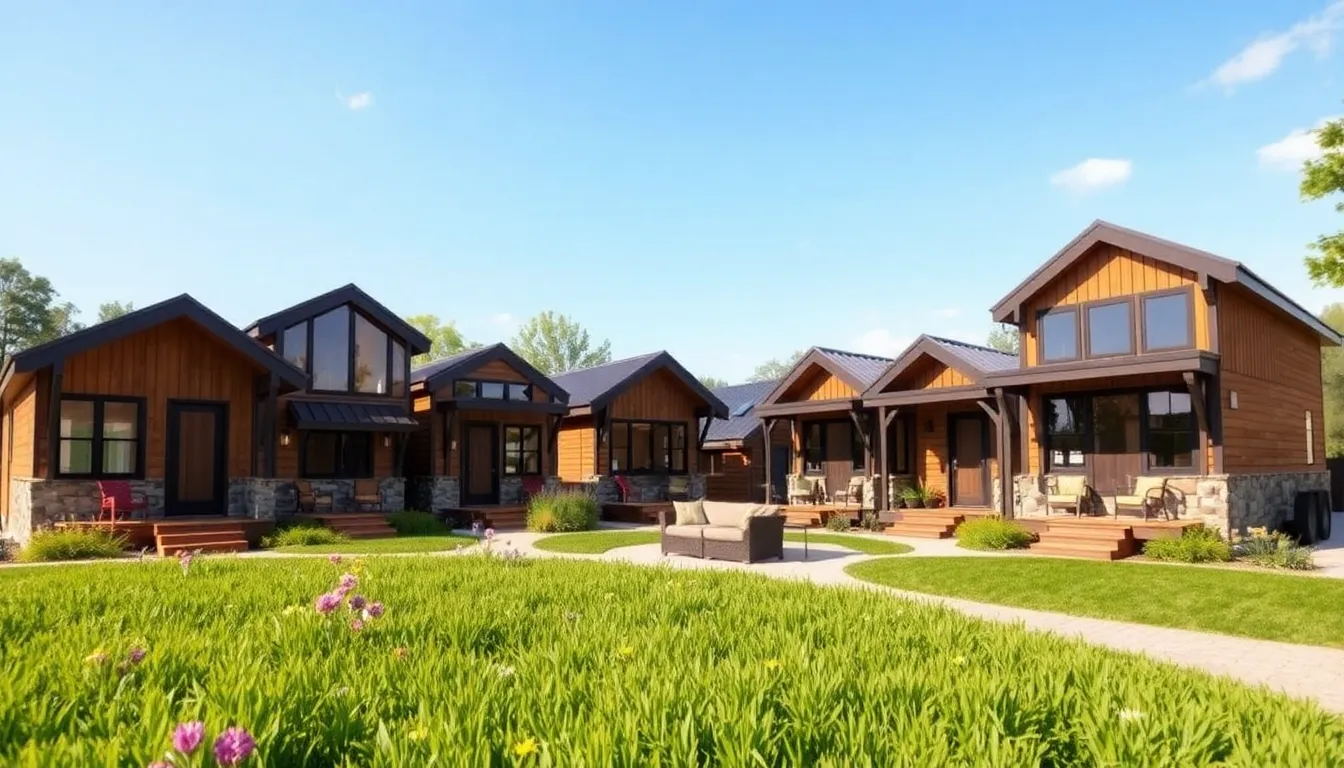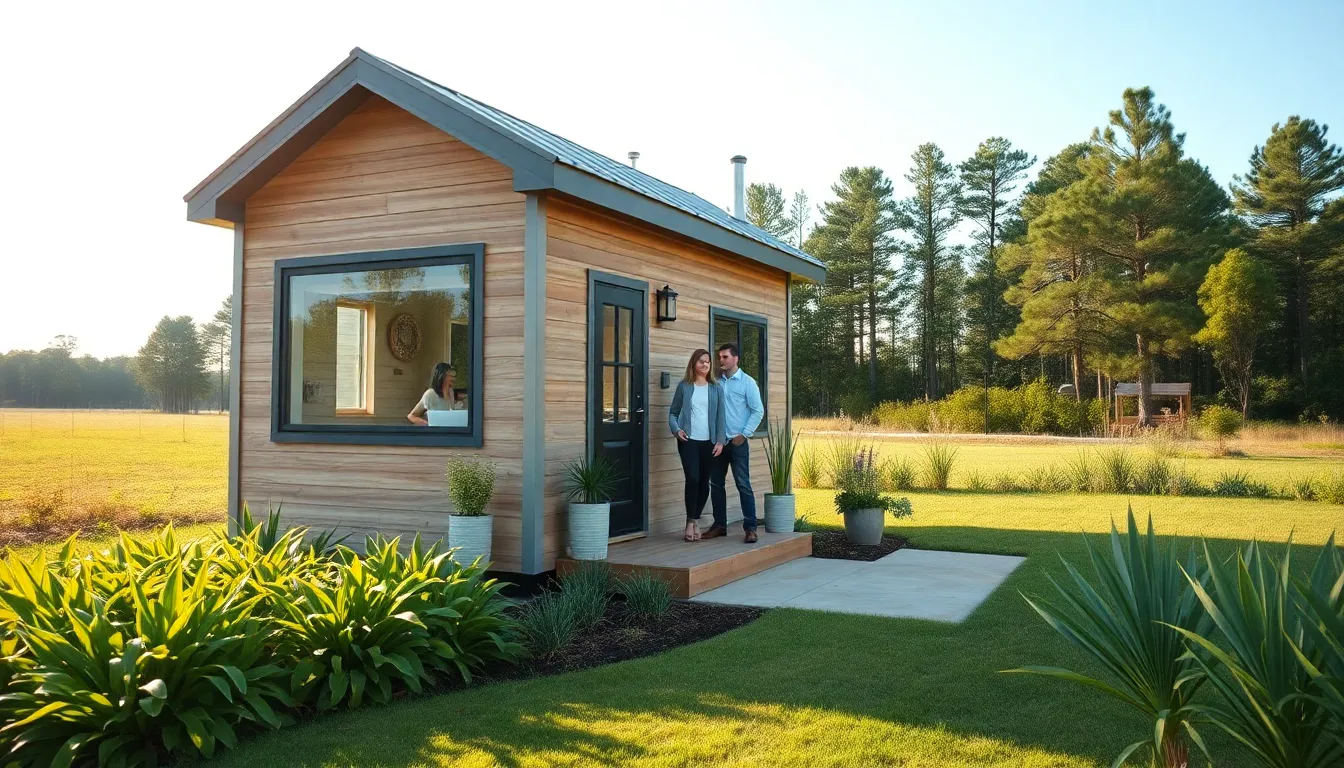In a world where bigger often seems better, tiny home workshops are flipping the script. These compact havens are not just for the minimalist at heart; they’re transforming the way people think about space and creativity. Imagine crafting your dream project in a cozy nook that’s as functional as it is charming. Who knew that less could truly be more?
Tiny home workshops offer the perfect blend of practicality and whimsy. Whether it’s a woodworking paradise or an art studio that fits in your backyard, these pint-sized spaces encourage innovation without the clutter. Plus, they’re a great excuse to avoid that awkward family gathering—“Sorry, I can’t join, I’m busy building my tiny empire!” Embrace the charm of tiny home workshops and discover how they can inspire creativity while keeping your life delightfully uncluttered.
Table of Contents
ToggleOverview of Tiny Home Workshops
Tiny home workshops offer unique spaces for creativity and productivity. These compact environments encourage innovation across various activities, including woodworking, painting, and crafting. Designed for individuals and small teams, they maximize functionality without sacrificing aesthetics.
Many seekers of simplicity find that these workshops suit their lifestyles perfectly. Often characterized by their minimalist design, tiny workshops minimize distractions and foster a focused atmosphere. The layout typically includes essential tools and ample storage, ensuring easy access to materials while maintaining organization.
In urban areas, tiny home workshops provide solutions for space constraints. More people appreciate transforming underutilized backyards or garages into productive retreats. Cost-effectiveness further enhances their appeal. Setting up a tiny workshop typically requires less financial investment compared to traditional studio spaces.
Individuals create personalized environments that reflect their interests and needs within these tiny workshops. Practical features, such as natural light, insulation, and energy efficiency, contribute to comfortable working conditions. Community support often arises, as local groups recognize the benefits of sharing resources and knowledge.
Through these compact creations, artisans and hobbyists redefine their approaches to work and play. Tiny home workshops hold immense potential for those looking to cultivate their passions without the burden of excess. Creative inspiration thrives in environments free from clutter and distractions, making these workshops an ideal choice for many.
Benefits of Participating in Tiny Home Workshops
Tiny home workshops provide numerous advantages for participants. These benefits include skill development and community building.
Skill Development
Participants enhance their skills in practical ways. Workshops usually offer hands-on experiences with various tools and techniques. Individuals may learn woodworking, painting, or other crafts. Instructors often have expertise in specific areas, providing guidance and mentorship. Continued practice leads to increased confidence and proficiency. Attendees can explore new hobbies or refine existing ones. Engaging in projects fosters creativity while developing problem-solving abilities. Personal growth occurs through constructive feedback and collaboration with peers.
Community Building
Building connections is a significant benefit of tiny home workshops. Many participants find a sense of belonging within the workshop environment. Networking opportunities arise as individuals meet like-minded enthusiasts. Sharing knowledge and resources strengthens the community. Collaborations on projects promote teamwork and friendship. Local groups may form, resulting in ongoing support long after the workshop ends. These connections often lead to events and gatherings, encouraging continuous engagement. Such interactions enrich the experience, creating a vibrant and supportive network for artisans and hobbyists.
Types of Tiny Home Workshops
Tiny home workshops come in various formats, accommodating different learning preferences. Two common types include online workshops and in-person workshops.
Online Workshops
Online workshops offer flexibility, allowing participants to join from any location. These sessions cover a wide range of topics, from woodworking techniques to art projects. Many platforms promote interactivity, enabling participants to engage with instructors in real-time. Recorded sessions provide added convenience, letting attendees review material at their own pace. Accessing online resources often fosters collaboration among a broader community, connecting individuals worldwide. Increased availability of specialized courses enhances skill-building opportunities, attracting a diverse audience eager to learn.
In-Person Workshops
In-person workshops create hands-on learning experiences in intimate environments. Participants benefit from direct interaction with instructors, gaining immediate feedback on their projects. Networking opportunities arise naturally, allowing attendees to share tips and forge connections with others who share similar interests. Dedicated spaces enhance focus, reducing distractions and fostering creativity. Engaging within a collaborative atmosphere often leads to enriched skill development, as participants support one another. Local resources or materials may be highlighted, further enhancing the relevance of the experience for attendees.
Key Features to Look For
When considering tiny home workshops, certain features can significantly enhance the experience and functionality.
Expert Instructors
Knowledgeable instructors are vital to the success of tiny home workshops. They provide guidance that includes techniques, projects, and safety measures. Skilled professionals foster creativity, encouraging participants to explore unique ideas. Experienced instructors often share industry insights, making sessions more enriching. Feedback from these experts helps participants refine their skills, leading to personal growth. Workshops led by passionate instructors create an engaging environment that ignites enthusiasm among attendees. Overall, having expert guidance increases the value of the learning experience.
Hands-On Experience
Hands-on experiences play a crucial role in tiny home workshops. Participants engage in practical activities, applying learned concepts directly. Building confidence through actual projects allows individuals to understand tools and materials better. The tactile learning process enhances comprehension, making abstract ideas tangible. Collaborative projects often encourage teamwork, fostering connections among participants. Real-world applications ensure that skills developed during sessions are relevant and usable. Ultimately, immersive experiences in tiny home workshops lead to lasting knowledge and proficiency.
Conclusion
Tiny home workshops are transforming the way individuals approach creativity and productivity. These compact spaces not only provide a practical solution for those facing space limitations but also foster a vibrant community of artisans and hobbyists. By offering personalized environments tailored to specific interests, they encourage skill development and collaboration.
As more people recognize the benefits of these workshops, the trend is likely to grow. Whether through hands-on experiences or online sessions, tiny home workshops create opportunities for personal growth and meaningful connections. They stand as a testament to the idea that creativity can thrive in any space, inspiring many to pursue their passions in a supportive and organized setting.








